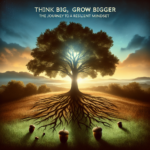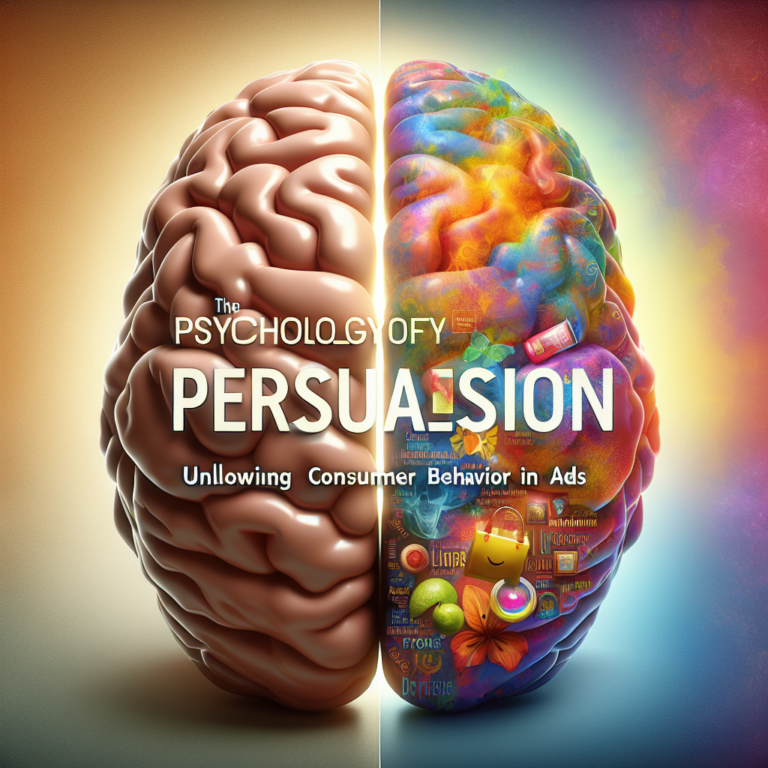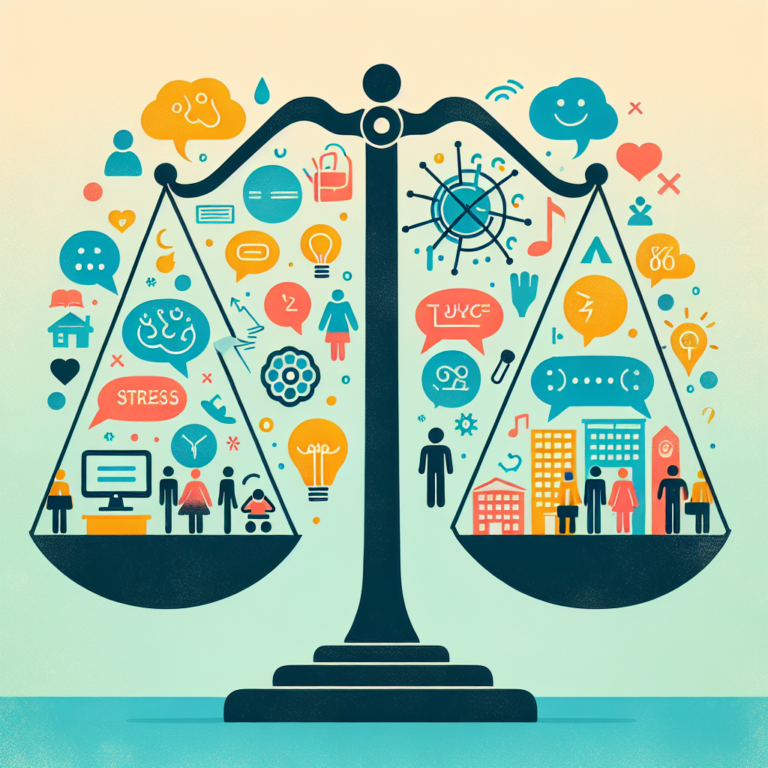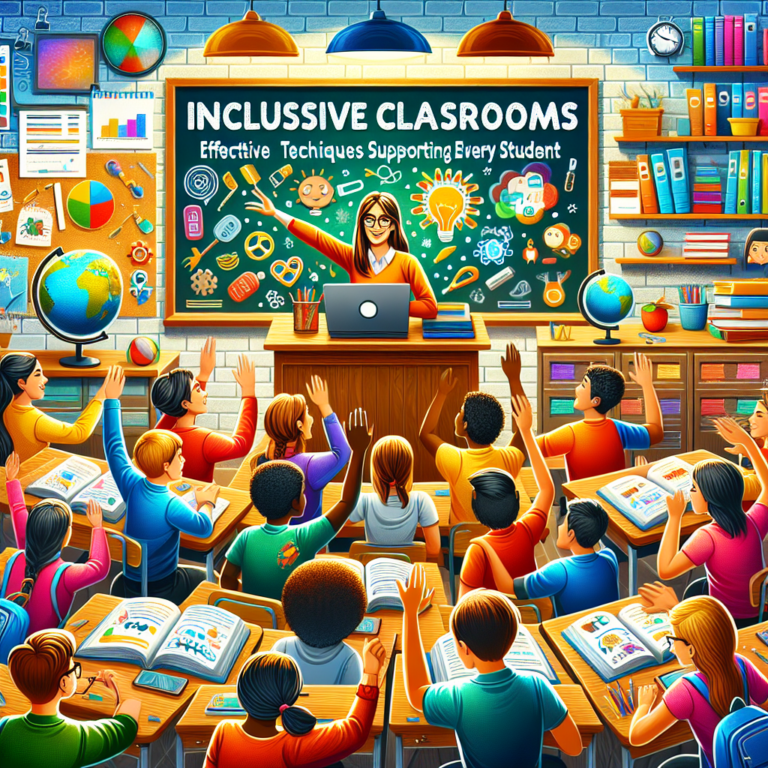
The Ultimate Power of Persuasion: Behavioral Psychology’s Role in Shaping Brand Loyalty
Introduction
In an age where brand loyalty can feel like a mirage in a marketplace saturated with choices, understanding the power of persuasion: behavioral psychology’s role in shaping brand loyalty has never been more essential. With so many companies vying for consumer attention, simply having a great product does not guarantee success. Instead, companies that adeptly harness the principles of behavioral psychology have the upper hand when it comes to crafting messages that resonate, persuade, and ultimately keep customers coming back.
Imagine a world where consumers don’t just buy because they need to, but because they feel a profound connection with a brand. This is where the intricate dance of psychology and marketing intertwines, creating unbreakable bonds between brands and customers. Let’s delve deeper into this realm and explore how understanding the power of persuasion can transform how brands approach customer loyalty.
The Foundation of Behavioral Psychology in Marketing
What is Behavioral Psychology?
At its core, behavioral psychology studies how people make decisions based on their emotions, cognitive biases, and social influences. It provides invaluable insights into what motivates consumers. Understanding these aspects can enable marketers to shape their strategies more effectively.
Key Principles of Behavioral Psychology
Cognitive Dissonance
This principle asserts that people experience discomfort when their beliefs do not align with their actions. Brands can leverage this by reinforcing positive associations post-purchase, thus solidifying loyalty.
The Reciprocity Principle
People feel compelled to return favors. Brands that give something first—be it a free sample or valuable content—often find that consumers reciprocate by making a purchase.
Social Proof
Consumers look to others when making decisions. Highlighting testimonials and user experiences can guide potential customers toward a brand, considerably enhancing loyalty.
Scarcity and Urgency
The fear of missing out (FOMO) can drive immediate action. Limited-time offers or exclusive memberships can persuade consumers to commit faster.
- Anchoring Effect
Initial information serves as a reference point. Smart pricing strategies can ensure consumers see value in a brand, aiding in their decision-making processes.
Real-World Case Studies
Case Study 1: Coca-Cola and Emotional Branding
Coca-Cola’s marketing famously invokes feelings of joy and togetherness. Their campaigns often focus on sharing, reinforcing social connections. For instance, their “Share a Coke” campaign personalized bottles, allowing customers to feel a direct connection. This exemplifies the power of persuasion: behavioral psychology’s role in shaping brand loyalty, as the brand fundamentally ties its identity to positive experiences and emotions.
Analysis: Coca-Cola has successfully created emotional ties that encourage repeat purchases over just product preference, proving that emotional resonance can build lasting brand loyalty.
Case Study 2: Amazon’s Use of Personalization
Amazon leverages data to create a personalized shopping experience, highlighting items based on past purchases and browsing history. This taps into the reciprocity principle, as consumers feel recognized and valued.
Analysis: By catering to individual preferences, Amazon fosters loyalty through a customized experience, demonstrating the power of persuasion: behavioral psychology’s role in shaping brand loyalty in digital retail.
Case Study 3: Apple and the Cult of Brand Loyalty
Apple embodies the power of persuasion: behavioral psychology’s role in shaping brand loyalty through its consistent branding and community feeling. The company successfully cultivates an image of exclusivity and quality that keeps customers yearning for the next release.
Analysis: The emotional investment in Apple has transformed consumers into brand advocates, showcasing the effectiveness of embedding psychological triggers into a marketing strategy.
Table: Key Behavioral Principles Applied in Case Studies
| Case Study | Key Psychological Principle | Application |
|---|---|---|
| Coca-Cola | Emotional Branding | Creating joy through shared experiences |
| Amazon | Personalization | Tailoring suggestions based on behavior |
| Apple | Exclusivity and Community | Building a sense of belonging |
Engaging Through Storytelling
The Art of Narrative in Brand Messaging
Storytelling is a compelling method of integrating the power of persuasion: behavioral psychology’s role in shaping brand loyalty. Narratives resonate emotionally, allowing brands to present themselves in contexts that consumers relate to.
Example: Nike’s Just Do It Campaign
Nike’s “Just Do It” inspires action and perseverance, aligning the brand with powerful human experiences. By associating their brand with stories of triumph over adversity, Nike does more than sell athletic gear; it offers a lifestyle and mentality that consumers aspire to embody.
Analysis: Nike’s success demonstrates how effectively engaging narratives can build customer loyalty, establishing deep emotional ties that withstand market fluctuations.
The Role of Data and Analytics
Measuring Consumer Behavior
Understanding data analytics allows brands to tap into consumer behavior insights, which can shape marketing strategies. Metrics such as customer lifetime value (CLV), customer satisfaction scores, and Net Promoter Scores (NPS) provide invaluable feedback loops.
Example: Utilizing A/B Testing
Brands can experiment with various marketing messages through A/B testing to assess which resonates better with their audience. By employing psychological principles in these messages, they can refine their approach and foster increased loyalty.
Analysis: The agility to adapt based on consumer feedback embodies the power of persuasion: behavioral psychology’s role in shaping brand loyalty, ensuring that marketing strategies are always relevant.
Creating an Engaging Customer Experience
The Importance of User Experience (UX)
User experience is not just about usability; it is about the emotional journey a customer embarks upon when interacting with a brand. A seamless, positive experience can enhance loyalty. Brands that prioritize UX employ principles from behavioral psychology, ensuring that customers feel valued and engaged.
Example: Starbucks and Customized Drinks
Starbucks enhances customer loyalty through a layered UX strategy, allowing customers to customize their drinks. This engagement gives consumers a sense of ownership and connection, demonstrating the power of persuasion: behavioral psychology’s role in shaping brand loyalty through experiential interaction.
Analysis: Starbucks showcases how personalized engagement—rooted in psychological principles—can build a dedicated customer base.
Influence of Social Media on Brand Loyalty
The Surge of Digital Communities
With social media shaping contemporary consumer behavior, brands can leverage online platforms to foster a sense of community. Engagement through likes, shares, and comments nurtures loyalty while also utilizing social proof.
Example: Glossier and Community-Driven Marketing
Glossier thrives on user-generated content, encouraging its customers to share their beauty experiences. This strategy enhances community bonds and reinforces brand loyalty through the principle of social proof.
Analysis: By empowering customers, Glossier taps into the the power of persuasion: behavioral psychology’s role in shaping brand loyalty, showing how harnessing community can elevate brand affinity.
Conclusion
Understanding the power of persuasion: behavioral psychology’s role in shaping brand loyalty is not just an exercise in marketing strategy; it is foundational to how brands create meaningful relationships with consumers. By leveraging psychological principles, brands can foster loyalty that transcends mere transactions and evolves into long-lasting connections.
As we navigate an unpredictable marketplace, brands that embrace these insights will thrive. Everyone—from entrepreneurs to established corporations—should recognize the potential in nurturing these relationships through smart, psychology-based marketing strategies.
FAQs
1. How does behavioral psychology influence consumer purchasing decisions?
Behavioral psychology highlights the emotional drivers behind purchasing decisions, such as fear of missing out and the desire for social validation, allowing brands to tailor their marketing strategies accordingly.
2. What role does storytelling play in building brand loyalty?
Storytelling fosters emotional connections with consumers, making them more likely to feel attached to the brand. Effective narratives can resonate with target audiences, enhancing overall loyalty.
3. How can brands utilize social proof to enhance customer loyalty?
Brands can showcase customer testimonials, reviews, and social media engagement to illustrate the popularity and quality of their products, creating a more favorable brand image.
4. Why is data analytics important in shaping customer loyalty?
Data analytics provides insights into consumer behavior, enabling brands to refine their strategies based on real-time feedback, which can foster more meaningful connections and loyalty.
5. How can brands create a seamless user experience?
A seamless user experience requires attention to detail in web design, customer service, and engagement strategies that prioritize the emotional and behavioral needs of consumers, ensuring satisfaction and loyalty.
By applying these principles of behavioral psychology thoughtfully, brands can harness the power of persuasion, thereby crafting loyalty that not only withstands challenges but thrives in an ever-evolving marketplace.














